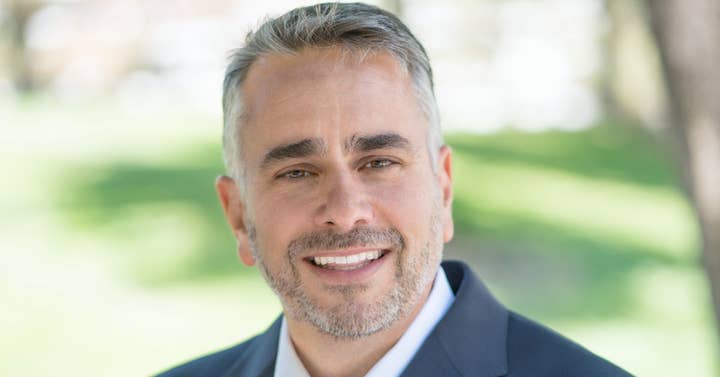EA's efforts to catch up to its responsibility
FIFA publisher's Chris Bruzzo on how the company is pushing for Positive Play, dealing with toxicity and responding to loot box criticisms
It's been one year since Electronic Arts published its Positive Play Charter, refreshed community guidelines designed to encourage better behaviour between players and stamp out toxicity.
Abusive behaviour in gaming communities, particularly around multiplayer games, is no secret and the FIFA publisher has tried to be a little more public in how it handles this, especially since the charter. Most recently, the company issued a permanent ban to a FIFA player who sent racial abuse to former footballer Ian Wright, even though that occurred outside EA's platforms.
Chris Bruzzo, executive vice president for Positive Play, marketing and commercial, says that such an initiative is necessitated in part due to the "massive explosion" in online interaction through video games over the last decade - especially since the start of the pandemic.
"The video game industry is catching up to, 'Wow, we have massive communities, and with that means we get all of the good and the bad associated with that,'" he tells GamesIndustry.biz. "And so that's why I think you're still seeing tools just catching up to things like, how easy can we make it to report inappropriate behaviour? How clear can we make our code of conduct so that it's so much more obvious when you're breaking one of the rules?
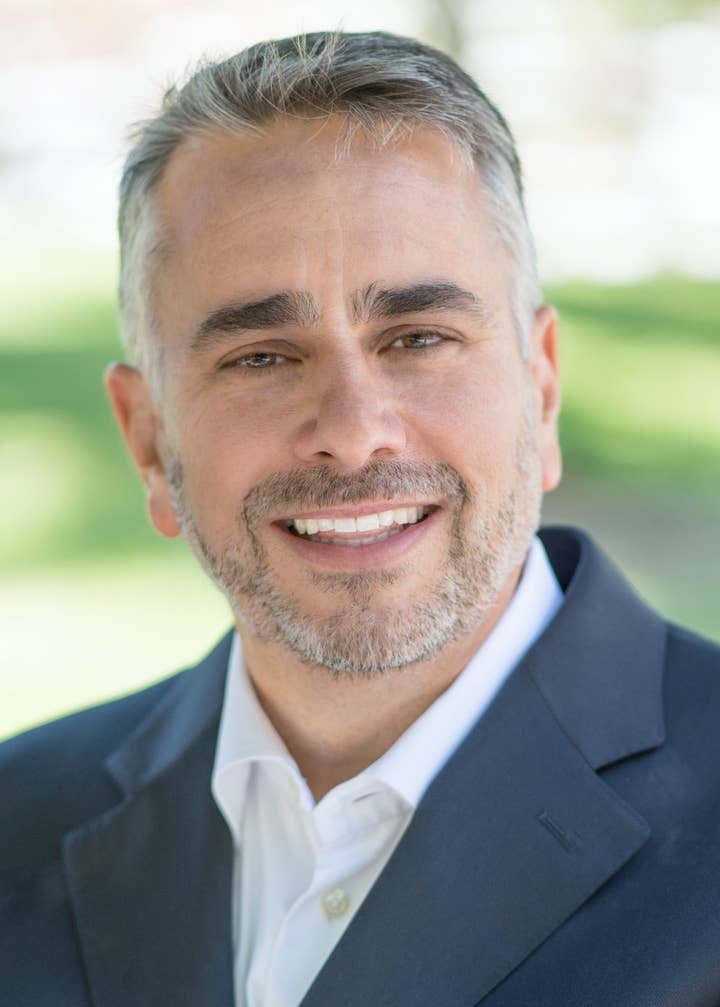
"This is going to be an ongoing area that will be dynamic and moving fast, and the industry has a lot of work to do to catch up to its responsibility in terms of the size of the communities that we now host inside our games."
EA has been trying to publicly demonstrate its efforts in this space. Earlier this year,EA released new tools specifically to help tackle racism and toxicity in FIFA 21, and this month it launched the Play Together/Play Smart campaign with Internet Matters to educate parents about family settings and other systems that can help protect younger players from the inappropriate aspects of playing games. And, of course, there's the Positive Play Charter - the key to which, Bruzzo says, was being very clear about expectations.
"The Positive Play Charter in very clear human language communicates how important it is to only share clean content, to only play in a way that's fair," Bruzzo says. "And we're very, very clear. Nobody wants to play with a cheater. Treat others as you would like to be treated. We've been super clear about that, and what that's allowed us to do is hold players accountable to it."
These expectations extend not just to player interactions in multiplayer games, but how they can interact. Speaking about EA's Accessibility First Patent Pledge earlier this week -- whereby the publisher made the patents to technology like Apex Legends' Ping System freely available -- Bruzzo told us the company was in no way obliged to enable free speech in a title like its popular battle royale game.
"We don't believe that we have a responsibility to create features and tools that allow you to say or do anything, including hate speech," he says. "The Apex Ping System is highly constrained, but extremely effective. The same is true for our ability to use technologies to identify hateful language, user and account names that include racial slurs or hate speech.
"The industry has a lot of work to do to catch up to its responsibility in terms of the size of the communities that we now host inside our games"
"I think that we're doing a good job of using software to root out as much of this as we can through automation, and then we're going to have to continue to apply lots of human intelligence to screening and taking action and so on. EA has definitely stepped forward, and we're being more aggressive about standing behind our commitment that play should be fair and safe and fun for everybody."
Quantifying that commitment is slightly tougher. Bruzzo is able to tell us that EA has a team of 25 people working around the clock dedicated to monitoring and acting on issues around players breaking the code of conduct, and this will grow over time. We're also told that last August, EA took action against over 9,000 accounts using offensive player and club names in NHL 20.
The company continues to review its games and the actions taken, and we're told the vast majority of disruptive content and behaviour is actually minor in nature, and that most players who receive anything from a warning to a suspension do not repeat this behaviour. There's also a strong focus on promoting positive behaviour, including reporting toxicity, which leads Bruzzo to expect an increase rather than a decrease in the number of incidents EA has to deal with - at least, at first.
"We're encouraging people to raise their hands," he says. "We're trying to make it easier for them. So I think we're going to have a ballooning of incidents, so that we can actually identify more of the things that are disruptive and take action on them."
Toxicity between players is just one aspect of the industry's issues with discrimination, harassment and hate. AAA publishers are under particular scrutiny for toxic work environments, especially in light of the Activision Blizzard lawsuit and ongoing reports emerging from Ubisoft. EA, so far, has largely escaped the level of exposés its rivals have been subject to, but Bruzzo isn't about to paint the publisher as a utopia for its staff.
"We're a community of over 10,000 employees. Are we going to have issues? Are there going to be places where some bad actors or toxic environments exist inside the Electronic Arts employment culture? Of course," he says. "Once you get to that level, that size of a population, you almost can't avoid it.
"[But] just like on the player toxicity side, you have to have a team that investigates complaints and takes action. So, yes, we have had to take some significant actions and dismiss employees, etc., over the last several years."
(Most recently, the publisher fired the lead game designer behind Apex Legends over sexist and racist comments made in 2007.)
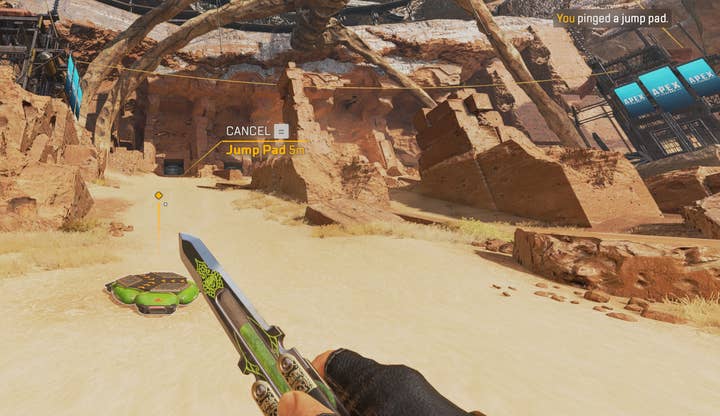
Bruzzo reports employees are given regular surveys and training in order to ensure everyone is aware of the company's code of conduct. We're also told that, in addition to employees being able to report to their managers, there is an internal 'raise a concern' platform, which is followed up by the company's People Experience team, and there's an external hotline for those who wish to seek support elsewhere.
The exec recognises that the issues these systems are designed to resolve stem in part from the industry being "historically super overrepresented by men... with a lack of diversity in general" - something he believes is true of most general technology companies.
"We're a community of over 10,000 employees. Are there going to be some bad actors or toxic environments? Of course. Once you get to that size, you almost can't avoid it"
"It's going to take a lot of work to change that over time," he says. "If we just talk about women, we have to hire women at every level of the company, in technical roles, in management roles, etc., and that takes a multi-year commitment to turning the shape of an employee population that has more than 10,000 people in it to something that is actually more diverse and representative. But we're making really great progress."
Bruzzo claims that 50% of the leaders who oversee EA's studio organisation are women, and that the Hispanic and Latinx population in the company's total workforce has grown by more than 35% in two years. Leadership has also been given unconscious bias training and receives annual sexual harassment training - but, again, he recognises the publisher is not immune to the type of accusations we've seen in recent years.
"Is it possible that, two weeks from now, we're going to hear that there was somebody who was behaving badly at EA for some period of time? I'm sure that's going to come up again, just by virtue of the large numbers of the people that we employ," he says. "And our job will be to deal with it, to take action, and to keep making things better."
Another area of scrutiny EA faces is executive compensation. Alongside Activision Blizzard, the company has been singled out by the Change to Win Investment Group over its "excessive equity granting problem." The group's campaign helped convince shareholders to reject last year's proposed compensation plans, prompting EA to make several changes to how it rewards its top execs earlier this year.
Bruzzo reflects on his experience serving on the board of directors at various other companies, alongside his duties at EA, and notes that executive compensation has been "a hot topic for a decade now."
"The biggest companies in every industry are getting scrutiny, not just video games," he says. "They're getting scrutiny. 'Executives are paid too much.' That's the first level -- if you want a headline, that's the headline. But that's not really getting at the issue.
"The issue is are you creating programmes that incentivise your executives to do things that are in the best interests of shareholders? And where companies got it wrong was when executives could be compensated or rewarded for things that didn't deliver shareholder value. And so, that's where a lot of the scrutiny is coming from, and as a result, companies have to respond to that and they have to change. They have to adjust their practices.
"I think there's a desire to call it a crisis and make it seem like it's some kind of an indictment on leadership or an industry, when actually it just represents the next area of attention and focus. And companies like us, we have to come to the table, and say, 'Alright, here are some adjustments we can make that would address the concerns we're hearing about, and that'll better align executive rewards with shareholder interests.'
"I'm sorry if I'm making that seem so much less interesting, but in truth, it's just another one of those areas where public companies need to engage and find common solutions that address the concern. And unfortunately, it is quite boring, in that it is mostly about aligning rewards with shareholder interests."
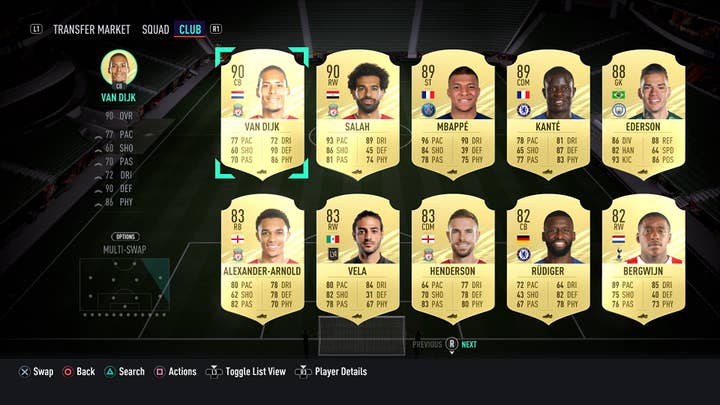
Perhaps the area EA has faced the most heat in over the past few years has been its monetisation practices - specifically the use of loot boxes in its premium games like FIFA. While things have been somewhat quieter on this front in the past year, the UK government is soon expected to reveal the results of its call for evidence, which will help decide whether loot boxes are included in the nation's amended gambling laws.
Bruzzo claims that, as with executive compensation, the headlines are not the full story. He says that 78% of FIFA 21 players never spend money in-game, and that nine out of ten FIFA Ultimate Team packs are earned rather than purchased.
"The premise that Electronic Arts is succeeding because players don't understand how much money they're spending is false"
"Nobody wants to talk about that," he says, adding; "We're waiting for the UK call for evidence report to come back. We're actively engaged with the UK government in that work. We're going to be sitting right at the table, shoulder to shoulder with the government regulators, with our industry partners, and just like we do when we hear reports of toxic behaviour, or players being upset about cheating, when we hear the evidence that comes back from the call for evidence, we're going to roll up our sleeves and work on it together."
He points to the fact that EA last year launched FIFA Playtime, a new tool to help players monitor their spending (among other things), and are now testing preview packs that let players see which Ultimate Team cards are included before they buy.
Bruzzo also adds that, while Belgium and The Netherlands have taken a tougher stance against loot boxes, other countries such as Australia, France, Sweden and Denmark have seen regulators decide not to class this model as gambling.
"Now, that's not to say that there won't be some desire to regulate in this space in some way, but it's more likely that we're going to have to have conversations about parental controls, spending amongst young people, toxicity amongst online communities," says Bruzzo. "Those are likely to be the really meaningful things we can do together, because at the end of the day, FIFA Ultimate Team is a beloved mode that players all over the world love to play. It creates ongoing engagement for the full year of football.
"Do we really want to eliminate a mode that allows people to collect real-world players into a team and play with them in a video game? Is that really our intent, to reduce player fun and choice? We want to take that away? Why? So, I think we just have to have more constructive conversations about this, as opposed to just hyperbole."
Ultimate Team modes alone make up a significant portion of EA's revenues - more than 27% in the company's previous financial year - so their importance to the company's bottom line is hard to understate. So it's interesting to see EA actively campaigning through Play Together/Play Smart to get more parents limiting children's spending. Does Bruzzo see this as a conflict between public image and overall company interest?
"I don't see any conflict there, no," he says. "What makes our games successful is when they're fun and there's enough content and competition and community in them that people want to play them for a really long time. If the premise is, 'Electronic Arts is succeeding because players don't understand how much time and money they're spending in games,' that is false. We're not succeeding because we're hiding information from players, which is why we're just being utterly transparent now.
"You want to know more about what you've spent, and how much time you've spent, and how many matches you've played? Here you go. And parents of minors, people under eighteen, same thing. We want them to have a positive experience with gaming. When we hear stories about young people where parental controls weren't used, where they had unlimited access to a credit card attached to their Xbox account, and as a result, they spent way too much, that pains us. We don't want that to happen."
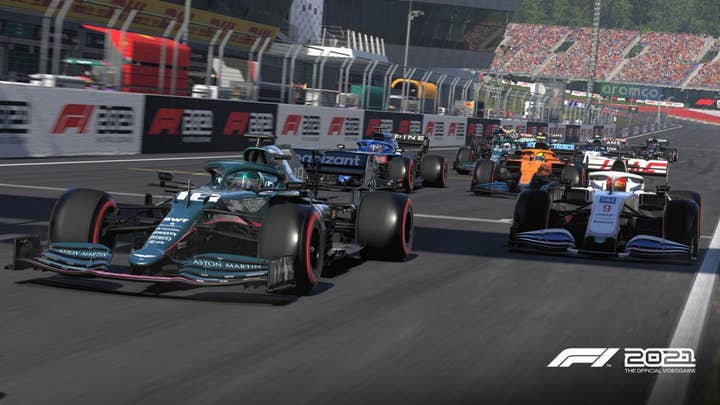
With the publisher waiting to see the impact of the UK government's decision on loot boxes, it's worth also looking at EA's operations on these shores. In the last year, it has tripled its footprint, thanks to the hefty acquisitions of Codemasters ($1.2 billion) and Golf Clash developer Playdemic ($1.4 billion). Now with 1,179 employees, the UK has become the third largest country in terms of EA's workforce, following USA and Canada.
While the acquisitions came as big news -- especially the shock takeover of Codemasters, beating out previous bidder Take-Two Interactive -- Bruzzo says we shouldn't expect to see any similar purchases in the near future and the company focuses on integrating the two studios. But he points out the fruits of this labour can already be seen with the "outsized success" of F1 2021, the first Codemasters title to be released after the acquisition.
"FIFA Ultimate Team is a beloved mode... Do we really want to eliminate that, to reduce player fun and choice? We need more constructive conversations, not just hyperbole"
"They did a phenomenal job with the delivery of that game. And then we did a really nice job of bringing it to market and getting it a level of attention that it hadn't had before, and the results, in terms of players playing F1, are going to be better than anybody expected," he says.
The pressure is on to maintain these high standards, especially as CEO Frank Sagnier and CFO Rashia Varachia chose to leave Codemasters just a few months after the takeover. Bruzzo is all too aware of the bar these two have set.
"Frank created a great culture, and the innovative spirit that has led to the kind of creativity of excellence that Codemasters has produced," he says. "And that will be his ongoing legacy. He's created that, and it will follow on. Same thing with Rashid.
"It's important for us to realise, those are some of the top roles in the organisation. They were driving that as an independent company. It's now part of Electronic Arts. What happens next? The two companies work as fast as possible to integrate, in order to get the value for players, for shareholders, for employees, and we've been very successful.
"That enables leaders who were going to transition out over a longer period of time to go ahead and transition out earlier, because it's going so well. And I think that's the case for both Codemasters, and the recent departures from Glu Mobile's leadership as well."
The acquisitions of both Glu and Playdemic also speak to another major strategy at Electronic Arts: a renewed push into mobile. The company has already confirmed it will be bringing new Apex Legends, Battlefield and FIFA offerings to smart devices and Bruzzo emphasises that EA does very well in this sector, holding six of the twenty most downloaded games since 2012.
"You can't argue with the expansion of mobile," he says. "It's the biggest gaming platform in the world. It continues to grow faster than anything else, for all kinds of obvious reasons that are endemic to mobile, and continues to be a key growth area for EA. These acquisitions came up as an opportunity for us to continue our investment and focus in mobile."
He concludes: "We expect the impact [of Apex Legends and Battlefield on mobile] will be a rising tide that lifts all boats in the franchise. That all of Apex Legends will benefit from having the mobile game. That all of the various PC and console versions of Battlefield are going to benefit from having an excellent Battlefield mobile game. We're an interesting publisher in that we're not as dependent as a lot of publishers are on having one hit game. We have a portfolio of games, and that puts us in a position to be one of the top publishers in mobile."
